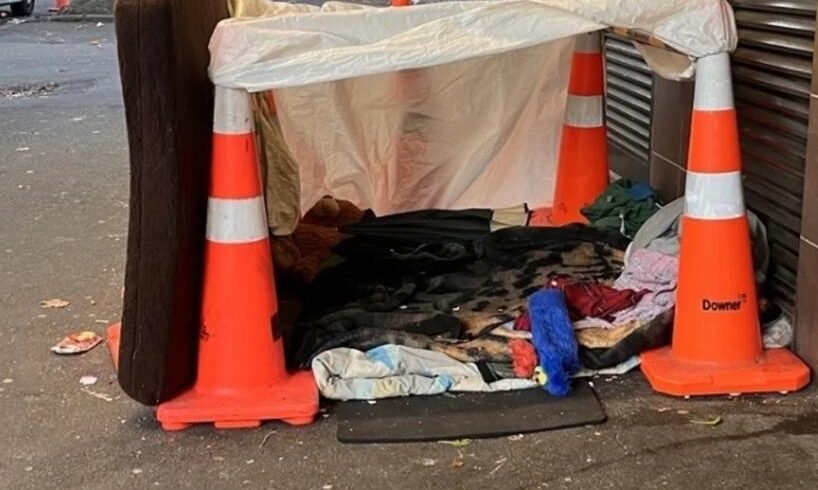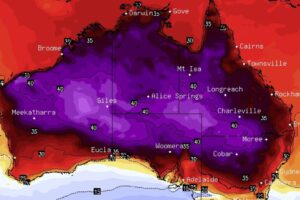
By Tuwhenuaroa Natanahira of RNZ
Homelessness has increased, but by how much is unclear, according to a government report.
The Ministry of Housing and Urban Development’s latest Homelessness Insights Report relies on data collected in Census 2023, observations collected from government agencies, councils and the sector, and found homelessness had increased, but it was impossible to quantify the exact increase.
The report defines homelessness as living situations where people are forced to live; without shelter, in temporary accommodation, shared accommodation with a household or living in uninhabitable housing.
It also looked into what support people receive 60 days after they exited emergency housing.
Thirty-seven percent were housed in social housing, 29 percent went into transitional housing, 19 percent received the accommodation supplement and the remaining 14 percent may be living without shelter, although that cannot be confirmed.
From May 2024 to March 2025, 972 households were housed through the Priority One Fast Track, including 2055 children, the report said.
In March, 32 percent of applications for emergency housing were declined, up 4 percent from the previous year.
The reasons people were declined include: ‘The need can be met another way’ (34.3 percent), ‘Circumstances could have been reasonably foreseen’ (22.5 percent), ‘Not eligible for a grant’ (16.7 percent) and ‘Not an emergency situation’ (14.7 percent).
In Auckland, outreach providers reported they were working with 809 “unsheltered” clients, up from 426 in September 2024.
Whangārei District Council has seen an increase in the number of public reports related to homelessness from 680 in 2023 to 1066 in 2024. The report said at the current rate, they are forecast to reach over 1200 reports in 2025.
In a statement, Housing Minister Chris Bishop said the report confirmed what frontline organisations like the Auckland City Mission and Salvation Army had been saying: there are too many people in housing need.
“Accurate numbers are difficult to pin down – people without shelter often move around and may avoid engaging with government services – but it’s clear we have a real problem.” he said.
“The government takes this seriously. At present, over $550 million is spent annually across a range of programmes run by multiple agencies, including Transitional Housing, Housing First, Rapid Rehousing and many other support services.”
Census data between 2018 and 2023 period showed a 37 percent increase of people living without shelter, despite the use of Emergency Housing.
Speaking to media, Green Party spokesperson for Housing Tamatha Paul said this confirms what many on the ground are saying.
“Although the data might be inconclusive altogether, it does in part confirm what we are seeing on the ground, what frontline workers are seeing on the ground, and what people are saying when they’re trying to access emergency housing,” she said.
“I’m glad that there’s some more transparency around what we are seeing, and that there is information in that briefing that says this government intentionally ignored advice that their decision would make homelessness worse.”
Paul said a faster than expected drop in emergency housing numbers was to blame.
“Now we know that the cruelty and the misery that underlined and underpinned that rapid decrease in emergency housing numbers also aligns with an increase in homelessness,” Paul said.
Speaking to media, Associate Housing Minister Tama Potaka said there was a range of support available for people who were declined emergency housing.
“That could be through housing support products like tenancy cover, bond cover, all sorts of things. It could be in transitional housing or Housing First,” he said.
Potaka said he was confident there was support for many people who had been declined, but admitted he was unsure sure of “100 percent” of those people would get support.
In a statement, Labour housing spokesperson Kieran McAnulty said the most significant jumps were in smaller cities.
“In Taranaki, homelessness increased by 250 percent in just six months, and Whangārei is forecast to see 1200 reports of people who are homeless this year – in a population that is under 100,000 people” he said.
“We have known homelessness has been rising since National came into government but Christopher Luxon, Chris Bishop and Tama Potaka have consistently denied it, ignoring everyone who gave them advice to the contrary.”
McAnulty said the rise in homelessness followed government decisions making it harder to access emergency housing.





